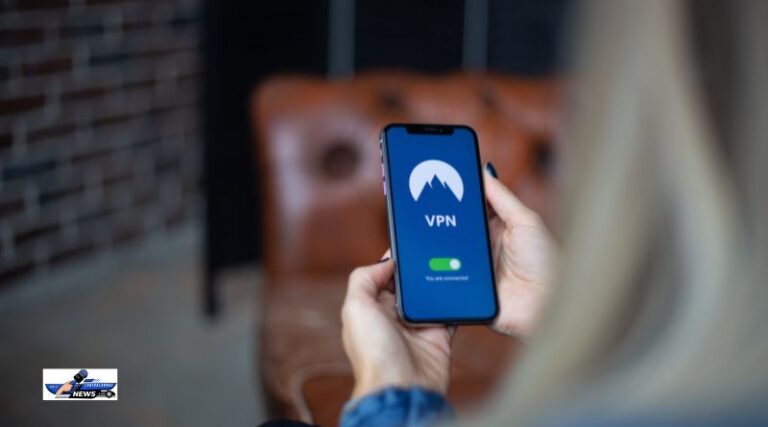The dangers hiding online follow as the globe gets more linked for VPN in 2025. Never more urgent have worries about privacy, data security, and the rising threat of cyberattacks been. Virtual Private Networks (VPNs) will still be rather important in 2025 for safeguarding personal data. For everybody who values internet security and freedom, VPNs have become necessary tools ranging from protecting private data to evading censorship. But what does the future hold for VPNs as technology develops? Let us thoroughly investigate how VPNs will affect our online experience in 2025 and beyond.
A Short History of VPNs
It’s crucial to know where VPN technology began before we discuss what the future holds. Originally employed by companies to let staff members access company networks securely from afar, VPNs first appeared in the late 1990s. The concept was straightforward: build a safe tunnel over the internet, encrypting data so that hackers and other third parties could not reach sensitive material. VPNs grew more common as more and more individuals began to see how exposed their data was online.
By the mid-2000s, VPNs were no longer only for companies; they became a common tool for regular internet users. People started utilizing them to prevent hackers, protect their Wi-Fi networks, and keep privacy when surfing the internet. Fast forward to 2025, and VPNs are now generally acknowledged as a basic component of preserving one’s online identity and securing data. Millions of individuals today use VPNs to protect their data, and this trend is certain to increase.
Reasons VPNs Will Still Be Relevant in 2025
The Growing Cybersecurity Risks
Cyber attacks will only becoming more numerous and sophisticated as we enter 2025. Cybercriminals are getting smarter and more inventive; as they do, it’s more crucial than ever for companies and people to act to safeguard their data. Cyberattacks are a big worry from phishing scams and data breaches to ransomware attacks and identity theft.
A VPN provides a straightforward yet strong answer: it encrypts your data and conceals your IP address, so greatly complicating hackers’ access to vital information. Whether you’re working remotely, utilizing public Wi-Fi, or browsing from home, VPNs will be even more important in guaranteeing your data remains private and safe as cybercrime increases.
Surveillance Age Privacy
Governments, businesses, and even ISPs (Internet Service Providers) wanting to monitor consumers’ online behavior have made the drive for online privacy more pressing in recent years. Government monitoring is a genuine worry in many areas of the world, and it is becoming more simple for officials to track our online activity. VPNs are usually the sole means for those living in nations with repressive governments or severe internet censorship to circumvent official limits and reach the free internet.
Government monitoring is likely to persist in 2025; for many, a VPN will still be the most efficient means of maintaining secrecy of their internet activity. Even if you’re under observation, VPNs guarantee you can access the internet safely and anonymously by encrypting your data and hiding your IP address. VPNs will be vital for protecting privacy in an increasingly watched world whether you are dodging government restrictions or just wanting to safeguard your personal data.
Business Security and Remote Work
One of the defining developments of the last few years, the move to remote work is probably going to last long into 2025. Employees are accessing sensitive corporate data from many sites and devices; companies are progressively implementing remote work policies. VPNs are essential in this situation. Insecure connections put companies at danger of exposing themselves to data breaches, hacker attempts, and other security weaknesses.
A VPN is essential for companies to guarantee that remote employees may safely access corporate networks. It safeguards sensitive data from unauthorised access by means of a safe, encrypted link between an employee’s device and the company’s network. VPNs will be important to corporate security as remote work keeps growing in 2025.
Accessing geo-blocked material
Many people nowadays use VPNs mostly to view material limited to particular nations. VPNs let users circumvent regional limitations whether they are accessing news sites and forums banned in some areas or streaming services like Netflix, Hulu, or BBC iPlayer. VPNs allow you to view a great deal of material you wouldn’t be able otherwise by hiding your IP address and pretending to be browsing from an other nation.
As more people understand that a VPN is the simplest method to access their preferred shows, movies, and websites, regardless of where they are, this trend of unblocking geo-blocked material will only keep growing in 2025. VPNs will continue to be the answer for enjoying a free and open internet for anyone weary of running into obstacles accessing material.
VPN Development in 2025
Incorporation of artificial intelligence and machine learning VPN technology is projected to develop in novel and interesting ways by 2025. The integration of artificial intelligence (AI) and machine learning (ML) into VPN services will be one of the most important advances we will notice. These tools will enable VPN providers to provide even more efficient and tailored security solutions.
AI-powered VPNs might examine trends in your online activity and change encryption algorithms automatically depending on your behavior. For instance, the VPN could up its encryption level if you are visiting a site recognized for security concerns. Machine learning could potentially identify and stop new kinds of cyberattacks in real-time, so giving you even more strong defense against changing threats.
Encryption Quantum-Resistant
Quantum computing is developing, and many experts are worried that present encryption techniques could eventually be susceptible to assault. Researchers will probably be testing quantum-resistant encryption techniques in 2025, which will provide improved protection against the possible danger of quantum computers. These next-gen encryption methods will be included in VPNs to guarantee consumers still have access to the most secure technology available.
Even against developing technologies that might compromise conventional encryption techniques, VPNs using quantum-resistant encryption will be able to preserve the greatest degrees of anonymity. Quantum computers are still in their infancy, but VPN providers will begin planning for a future in which they have to defend against quantum-powered cyberattacks.
Decentralised VPN Networks
The growth of decentralized VPNs (dVPNs) is yet another interesting event in the VPN sphere. While a decentralized VPN runs on a distributed network of nodes, usually powered by blockchain technology, traditional VPNs depend on centralized servers. There is no central authority running the network, thus this might make VPNs even more safe and resistant to censorship.
A decentralized VPN allows users to access a worldwide network of servers, hence enhancing security and performance. Moreover, these networks significantly increase difficulty for governments or hackers to disable the VPN service or track user behavior. For individuals who value privacy and decentralization, dVPNs might become a popular option by 2025.
VPN Use: Legal and Ethical Issues
VPNs will raise additional legal and ethical questions as they grow more common. In certain nations, using a VPN to circumvent geo-restrictions or participate in particular online activities is against the law. Some governments could even try to completely prohibit VPN services. Especially in regions where online censorship is a significant concern, more nations will probably control or limit VPN use in 2025.
VPNs are usually considered ethically as a means to safeguard personal privacy, but they can also be used for less desirable ends, such as visiting the dark web or participating in criminal activity. This begs the question of how far VPN companies should go to guarantee no abuse of their services. The VPN sector in the next years will have a major challenge in balancing privacy rights with the necessity to stop criminal activities.
Final thoughts: Beyond 2025, VPNs
Looking forward to 2025, it’s obvious that VPNs will still be a vital component of our online existence. From cyber risks, accessing limited material, or keeping privacy in a society of growing surveillance, VPNs will keep playing a crucial role in guaranteeing that people may browse the internet safely and freely.
VPN technology’s future seems bright with developments in encryption, artificial intelligence, and distributed networks. But, like with any technology, VPNs have to be used ethically and responsibly, therefore combining the requirement of privacy with the necessity of security. VPNs will be vital for preserving our safety and freedom in the digital world as long as the internet stays a fundamental component of our everyday life.

